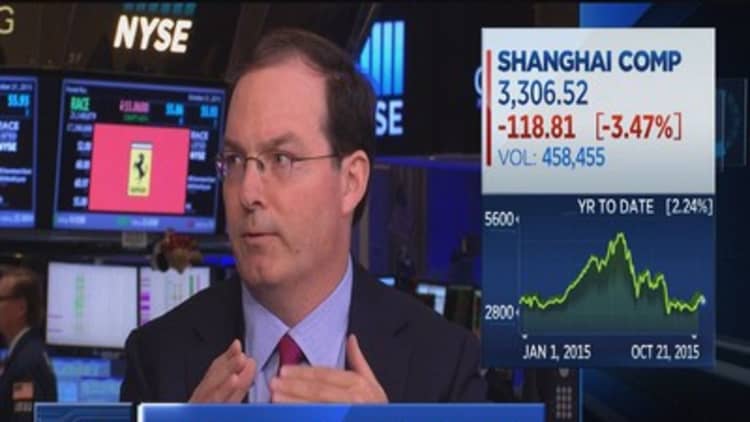
When it comes to restructuring across the globe, there's one common theme: It's the age of the consumer. At least, that's the theory of one private equity expert.
In China, for instance, fixed investments are slowing, but the consumer market is really changing the economy, said Henry McVey, KKR head of Global Macro & Asset Allocation, on Wednesday.
"I think the anticorruption [policy] is really affecting demand, and new things like the Internet are creating issues where people are changing the way they're shopping," said McVey, who just returned from the world's most populous nation, where KKR has a portfolio of 16 companies with environmental, health-care, food safety and other high-value-added services. "Also, a lot of that fixed investment has created excess capacity in the consumer part."
China reported economic growth of 6.9 percent in the third quarter of 2015, facing stock-market jitters as it transitions to a service-based economy. The services sector accounted for 51.4 percent of the economy in the third quarter, a recent report said.
"A lot of this slowing in China means that companies globally — dollar-based bonds issued in Australia, commodity producers in Brazil and Indonesia — we see a lot of restructurings where companies are coming to us and saying, 'Can you help us refigure our balance sheet?'"
Speaking to CNBC's "Closing Bell," McVey said he's seen slow fixed investment as a trend in nations across the world, including the U.S., while consumers continue to be a focus.
"From the equity arena, we're probably most excited for what we see in the U.S.," McVey said. "In private equity, we continue to do things around the U.S. consumer."
McVey looked to exploding household formation as a cyclical indicator of good things for the American consumer. Household formation rose in the second quarter of this year, particularly for rented units, according to the U.S. Census.
He was also impressed by what he saw in Mexico, where households saving on natural gas prices and telecom services have more ability to spend.
"What's different about Mexico, if you were to contrast that with China, is that the consumer is really coming out," McVey said. "We're starting to see signs where the formal economy is growing, wage growth is going up and there's some credit extension. If you couple that with the reforms it's pretty encouraging."




